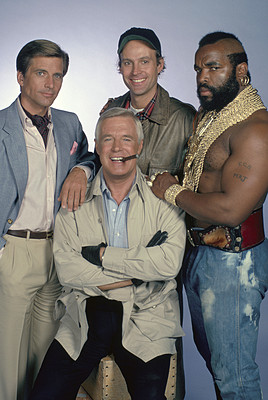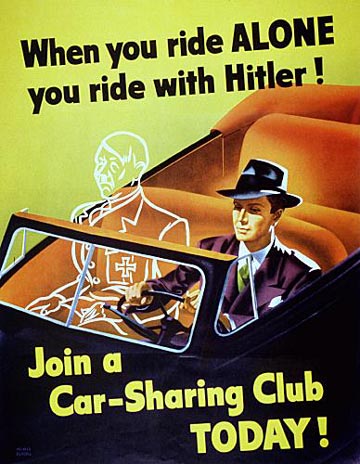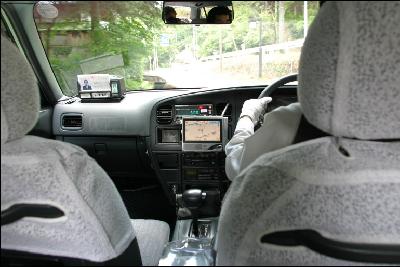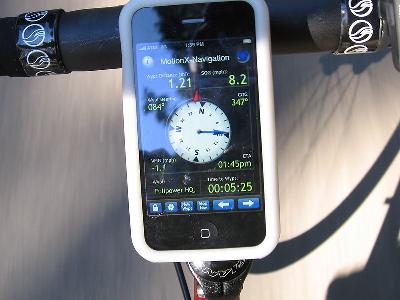| < | Wavepacket Blog |
> |
| << Newer entries << | |
| 2009 | |
| May | |
| Mon May 25 23:33:34 2009 TV Shows are Dead |
|
| Thu May 21 23:02:43 2009 Fighting Traffic |
|
| Sun May 17 12:37:39 2009 Caveat Emptor: in-dash GPS |
|
| >> Older entries >> | |
| >> links >> | |
| Mon May 25 23:33:34 2009 TV Shows are Dead Say goodbye to the TV series... |
|
I'm not the best person to make predictions about TV shows, since I don't
actually watch any. But even someone who only watches other people watch TV
shows can see a few trends:
This is an interesting paper, covering how TV has evolved over the past 30 years. Some of the stats:
Then, this paper, which as far as I can tell covers leisure time in the Netherlands, notes that TV viewing per week grew a lot from 1980 - 1990, but was mostly flat after 1990 (although still growing!). According to that, people spend from 11.5 - 17 hours per week watching TV. Wow. However, time spent on the PC or Internet grew from basically zero in 1980 to over two hours now. Also, it grew the most among the 35-54 year olds, so the people watching the least TV (11.5 hours per week) were also the demographic spending the most time online (2.1 hours per week). And finally, this presentation (why is it North European countries measure their leisure time so well?) has some great data. Namely, their "Time spent on media, population 12+" graph, which shows:
So the summary: people are spending more and more time online, and less with other media--except maybe books. And it's a double-whammy for TV networks, since there are more of them competing for less of peoples' time. What does this mean for TV shows? At the moment, TV shows are hitting some rough times. All that sells on the networks is reality TV such as American Idol or Survivor. Other good shows such as Firefly get shut down due to poor ratings (I'm not a Firefly fan but I know many people who were disappointed when the series was cancelled--and I think it was better programming than most shows out there! But I didn't help Joss Whedon any, since as I said, I'm not really a TV watcher). The TV execs are wondering what sort of programming will save them. Probably nothing will save them! TV series will go away, and in 5-10 years we won't watch them. Why? Everything will be online. There is absolutely no reason to watch anything on TV except for live telecasts such as sports. Watching online gives you as good or better resolution. Most importantly, you can pick when you want to watch the show, and you can pause and play whenever you want. Your viewing schedule isn't tied to the network's broadcast schedule. I don't think syndicated shows (that is, shows consisting of multiple episodes) will go away. But the medium will change, and TV will be left behind. Here are my predictions:
I have no idea what the new revenue model will be. Everything driven by product placement? Companies will fund high-quality shows in exchange for regular advertising? Most likely, the revenue model will consist of websites that pull content from the producers of the shows, and add targeted advertisements to viewers that want to download. So TV shows will start to fade into history. People will soon talk about the hot new Internet show they're watching instead. You heard it here first! (Especially if you're from Denmark, since I know you read a lot of blogs in your leisure time). Comments |
Related: economics books predictions Unrelated: energy environment geopolitics lists mathematics science |
| Thu May 21 23:02:43 2009 Fighting Traffic Why do cities persist with bad solutions? |
|
| I often think about traffic. Usually because I'm stuck in it.
I have a short but sometimes brutal commute to and from work. Typically it is 20 minutes, but occasionally I'll get stuck in stop-and-go traffic on the Interstate. And on the weekend I sometimes have to drive long distances, and again I'll run into traffic jams. Traffic isn't exactly a recent phenomenon. Julius Caeasar once banned carts during daylight in Rome because of the severe traffic. Today we have other methods of attempting to control or reduce traffic. There are HOV lanes, express lanes, and other ideas such as stoplights at on-ramps, and road pricing. I've found HOV lanes the most frustrating. Of course, I'm usually driving alone, so I could just be jealous. But I find that they are underused when there is very little traffic, so that most of the time they just reduce road capacity without adding any benefit. And when traffic does pick up, the HOV lanes are usually just as clogged as any other lane. There may be times when the HOV lanes are moving and other lanes aren't, but I rarely see that. Which means that most of the time, HOV lanes are ineffectual, and maybe cause more congestion than they relieve. It's possible that relieving congestion isn't the point. Perhaps HOV lanes are known to cause additional congestion, but are meant to reward carpoolers? But then I don't understand the motivation. It seems like we should only care about two things:
Express lanes seem to actually work. They add capacity to the highway when needed. And they are reasonably efficient, since cities can build for asymmetric traffic (rush hour in the morning is usually a different direction than rush hour in the evening). Stoplights at onramps also seem to work. You end up with traffic flowing smoothly into the interstate, instead of getting surges of cars that can then cause backups on the Interstate. When driving long distances, I definitely notice that unmetered onramps can cause a larger interruption to other drivers. Best of all, in my opinion, is road pricing. With road pricing, people pay money when they are in a traffic jam. (Or, depending on the city, they pay money if they are likely to be in a traffic jam, given when and where they are driving). Especially in the next few years, as we get to cars that will be more aware of other traffic in the city, the ability to charge people that are in congested areas will do the most to motivate people to change their habits, or think a bit further ahead before driving into congested areas. I've seen some arguments that road pricing isn't fair because it charges everyone the same rate. But that's just a problem with the pricing, not road pricing in general. A city could always charge based on the price of the car, for instance. Beyond traffic flow, the best fix for congestion is urban planning. I think urban planning is a misunderstood art. Central planning at large scales doesn't work--just ask the former Communist states. But by using game theory and more general economic strategies, urban planners can influence a complex system such as a city so that it optimizes for less congestion and emissions, without planning every last road. Comments |
Related: economics energy environment Unrelated: books geopolitics lists mathematics predictions science |
| Sun May 17 12:37:39 2009 Caveat Emptor: in-dash GPS My awesome, horribly anachronistic in-dash GPS unit. |
|
| A few years ago, I got horribly lost while driving in the wilderness, scouting
for land. I blew a tire (which I fixed, but then was vulnerable to
another flat), and almost ran out of gas. I wasn't in any real danger (I had
food and water and, of course, a cell phone) but it was annoying and
expensive in time and money.
So I decided to get a good GPS unit so I would never get lost again. I picked up one for hiking, but it was awkward to use in the car. Around a year ago, my car was broken into and the stereo stolen, so I thought it was a good time to upgrade. In-dash GPS units have been around for a while, but I wanted one with good audio/mp3 support, and (most importantly) the user interface had to be elegant. I'd looked at in-dash GPS units before, but the user interface was always terrible. However, I did find an in-dash GPS unit with integrated audio and an elegant UI. I forget the exact model, but it's one of these but without DVD support. It's probably the best car stereo I've had! The user interface isn't perfect, but it's better than most of them out there. My parents could never figure out the stereo when they borrowed my car, for instance. Now they can. The GPS has been helpful. I haven't gotten lost yet, but it has helped me find routes that I wouldn't have otherwise tried, and it's made navigating around the city easier as well. However, you should never, ever buy in an in-dash GPS unit. In-dash GPS units were probably obsolete 2-3 years ago, but no one noticed. Now it is very clear. You are a sucker to buy one now! The main reason not to buy? Cell phones with GPS can do the job better and cheaper. And if you get a GPS-enabled cell phone, you can use it anywhere, not just your car. What's the big difference? In-dash GPS units are offline. The in-dash GPS unit is great, but it relies on its own local database, which leads to two problems. First, the database can get out of date. Has a new restaurant opened? Has a road been closed? You won't know, because you've got the data snapshot from 18 or more months ago. The second problem is that the offline GPS can't tell you about traffic. Is there massive congestion ahead? Should you pull off and enjoy an hour in a restaurant somewhere, or is this just a temporary slowdown of traffic? Your offline unit will have no clue. Online units are able to get traffic data from multiple sources. You may have an in-dash GPS unit that has some sort of online support, but odds are it is a custom connection and you pay extra for it. Just get a GPS-enabled cell phone! Then your connection is covered by the basic Internet connection, and isn't a custom fee. Besides, even if your GPS unit does have some online support, there is another problem: In-dash GPS units are a small market. Everyone is getting GPS-enabled phones. Developers are outdoing each other to come up with features and easy-to use GPS programs. If you don't like your GPS software, odds are you can update your phone or find another program. In-dash GPS units are proprietary. The makers want to provide useful products, but their goal is to lock you in and make money off you. If the user interface is terrible (a common problem) you have no recourse. As an example, I can't get the altitude from my in-dash GPS unit unless the parking brake is on (!). I can't imagine what led to that decision. But I'm stuck with it. But that's just the tip of the iceberg. There are a bunch of user interface decisions made as part of a GPS display, and if you use an in-dash GPS, you will have little or no control over those. It might be acceptable if in-dash GPS units were cheap, and consumers put up with the restrictions because they were a bargain. But in-dash GPS units are expensive! It's much cheaper to buy a GPS-enabled phone and a multi-year wireless contract. And all good phones today also play MP3s. So don't make my mistake. Just find a way to mount your phone in your car. It's better and cheaper. Comments |
Related: economics Unrelated: books energy environment geopolitics lists mathematics predictions science |
| Links: |  |
Blog Directory | Blog Blog | Technorati Profile | Strange Attractor |




